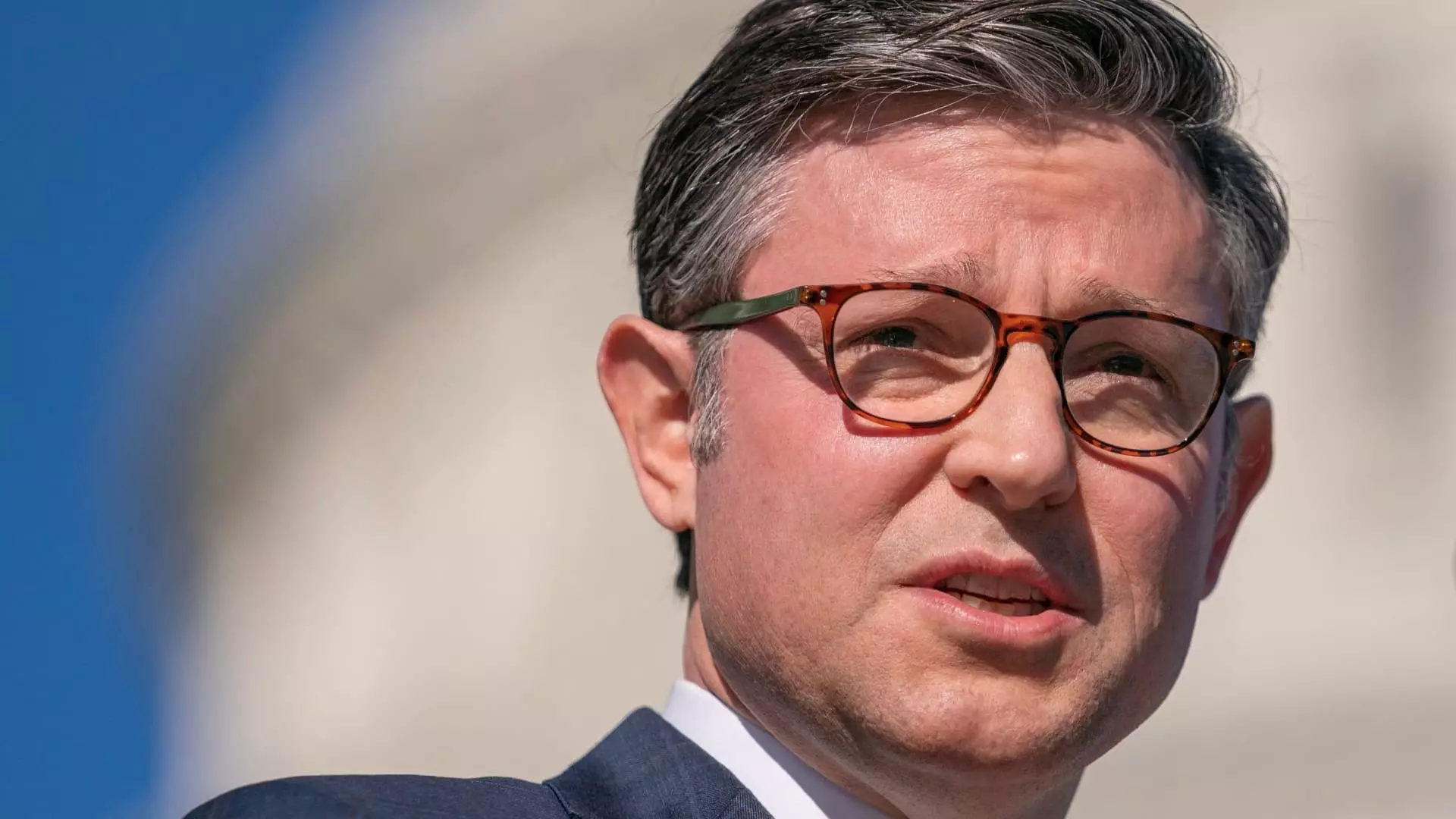The saga surrounding Matt Gaetz, recently nominated by President-elect Donald Trump as U.S. attorney general, has sparked intense debate and scrutiny. House Speaker Mike Johnson expressed concerns regarding ongoing investigations by the House Ethics Committee, describing them as a “Pandora’s box.” This situation is emblematic of the intersection of politics, ethics, and leadership in contemporary America, especially when high-profile figures are embroiled in allegations of serious misconduct.
The crux of the controversy lies in the allegations that Gaetz was involved in sexual misconduct, substance abuse, and other questionable behaviors during his tenure in Congress. Upon learning of the upcoming Ethics Committee report, which remains in a rough draft and uncompleted state, Johnson suggested that releasing it would be inappropriate given Gaetz’s recent resignation from Congress. This resignation, occurring just days before the report’s release, effectively terminates the Ethics Committee’s inquiry as its jurisdiction extends only to current members of Congress.
Critics argue that this could create an atmosphere of impunity for political figures, where serious allegations can be swept under the rug due to procedural technicalities. The important issue here isn’t merely whether the report should be released but rather what it implicates about accountability mechanisms within the U.S. legislative framework.
Johnson’s remarks on CNN’s “State of the Union” shed light on the broader implications of pursuing inquiries into private citizens, considering Gaetz has stepped down from his position. Johnson emphasized that the Ethics Committee should not expend its significant resources to investigate individuals outside of its jurisdiction as it could set a troubling precedent. Such insights raise critical questions: Should the committee’s authority be retained for future allegations linked to former members, or is there a legitimate concern that it could become a tool for political retaliation or personal vendettas?
Certainly, there exists a delicate balance to strike between the need for accountability and the safeguarding of a former official’s dignity. However, Johnson’s viewpoint resonates with those who fear that the investigation might derail the proper vetting process, which should remain focused on the qualifications and fitness of Gaetz for the role of attorney general.
Despite this controversy, the Senate’s responsibility to conduct detailed scrutiny over nominees remains critical. Johnson posits that the Senate should conduct its own thorough vetting process without relying on the incomplete Ethics Committee report. This raises the importance of presidential nominations being subjected to rigorous examinations beyond mere reports or drafts. With numerous critics calling for full disclosure of the allegations, the Senate is poised to take on a pivotal role in affirming or rejecting Gaetz’s nomination based on a comprehensive assessment of his qualifications and character.
Sen. Markwayne Mullin’s remarks, stating that the Senate should provide Gaetz with the same opportunity as any other nominee, articulate a belief that professionalism and competence should ultimately dictate the appointment process. However, such stances must be carefully weighed against the severity of the allegations against Gaetz.
Intriguingly, Gaetz’s previous entanglements with an investigation concerning sex trafficking complicate his potential ascendance to the position of attorney general. With past inquiries concluding without charges, the question remains whether the absence of legal action absolves him of ethical responsibility.
Further complicating matters, new allegations have surfaced, including claims made by an attorney representing a woman who alleges she witnessed Gaetz engaging in sexual activities with a minor. Such claims necessitate urgent attention, as they not only reflect Gaetz’s past conduct but also the ethical considerations inherent in selecting someone to lead a pivotal legal institution, such as the Department of Justice.
This situation exemplifies the key challenges faced by political and legal institutions today. The ethical complexities surrounding figures like Gaetz underscore the necessity for transparency and accountability at all levels of leadership. As the Senate prepares to undertake the challenging task of confirming presidential nominations, all individuals involved must pursue a path that foregrounds ethical reporting and public trust. Realistically, this process should invite thorough examinations that go beyond mere reputations, emphasizing that integrity is indispensable for anyone serving in a judicial or leadership capacity.


Leave a Reply